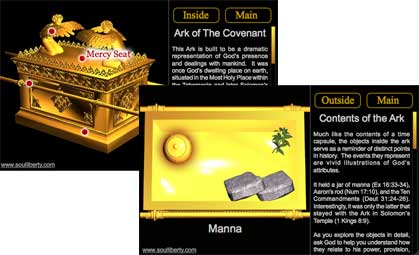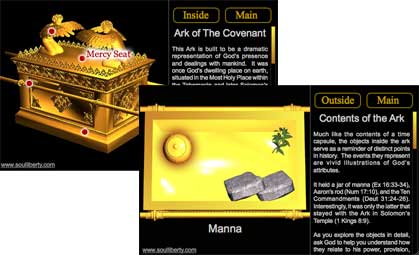In 2005, Bobby Henderson wrote a letter to the Kansas State Board of Education expressing his opposition to their recent decisions concerning the teaching of Intelligent Design. He claimed to be a member of a parody religion known as Pastafarianism which worships the Flying Spaghetti Monster. His skillful use of rhetoric and humor turned the idea into an Internet phenomenon – today it has a polished website and 14.6% of the French editors of Wikipedia claim to believe in it. Yet, his own parody easily shows the foolishness of these common anti-creationist arguments.
The argument generally goes that if Intelligent Design or anything else that might be characterized as creationism is allowed to be taught alongside evolution, then every single creation story must be included, no matter how ridiculous it may seem. This argument embodies the perspective that the notion of a creator God is just as silly, imaginary, and unscientific as, well, a Flying Spaghetti Monster (hereafter known as the FSM). One need not provide further evidence to point out the atheistic nature of this line of thinking.
I once pointed out in a discussion with an ardent atheist that belief in evolution requires a belief that such a ridiculous creature could one day evolve. I posited that an octopus could eventually take on characteristics that allow it to fly, giving an air-bound creature the “noodly appendages” that are so emblematic of the FSM. His predictable retort described me as totally ignorant regarding what Darwinism is all about. Little did I know that I’d be vindicated by a project called The Future Is Wild, which includes a documentary and a cartoon series aired on Discovery Kids.
The project is centered around imagining what creatures might be around 5, 100, or even 200 million years from now. Yet, they repeatedly claim that it involves much more than that:
“Every animal and plant in The Future is Wild could really exist. Our science team devised each one as a viable, living organism. Their place in the environment, their life cycle and their place in the food chain are all authentic.”
What’s more, the team involved in the creation is not made up of artists, but 16 scientists that are “experts in fields such as geology, climatology and biology.” To be clear, they are claiming that the processes of biological change originally theorized by Charles Darwin could realistically make their imagined world come to life given the right conditions and enough time. That’s where Squibby comes in.
Squibby is the playful pet of the main characters of the cartoon series. He is a cross between a Gibbon (which resembles a monkey) and a squid (yes, a squid), giving him the proper name, “Squibbon.” The resemblance to the FSM is striking:
 Because of their tree-dwelling ancestry, squibbon can “fly” through the trees. The relation to a squid gives it the same “noodly appendages” as the FSM (the Future Squid Monkey?) Really, except for the fact that the squibbon only has one large round body mass instead of two, these two creatures are not decidedly different from one another.
Because of their tree-dwelling ancestry, squibbon can “fly” through the trees. The relation to a squid gives it the same “noodly appendages” as the FSM (the Future Squid Monkey?) Really, except for the fact that the squibbon only has one large round body mass instead of two, these two creatures are not decidedly different from one another.
Galatians 6:7 tells us that God s not mocked. Indeed, when vast numbers of people reject their creator, the resulting foolishness is limited only by our imagination. The absurdity of Henderson’s “monster” makes it an effective and humorous parody. As we have seen, atheists themselves must believe such a ridiculous thing could someday exist in order to be consistent in their worldview.

